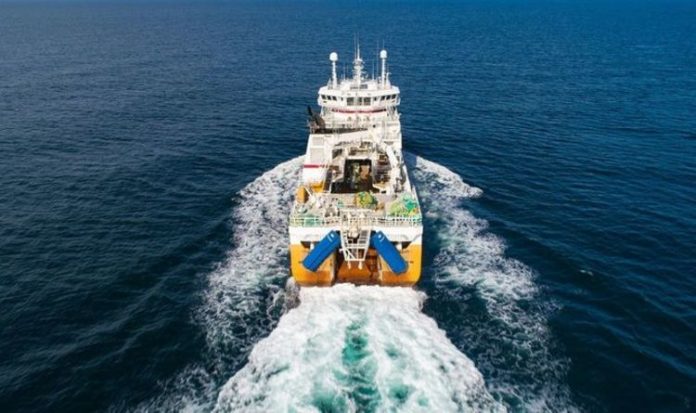Fishing remains the key sticking point in Brexit trade deal talks which have now been extended after Boris Johnson and the European Commission President Ursula von der Leyen failed to reach an agreement in face-to-face talks last night. But UK Fisheries, a leading player in Britain’s North Sea fleet, said the Government should move towards a further deal with the Norwegians whatever the outcome of the newly-extended Brexit negotiations.
Britain has already signed a fisheries agreement with Norway under which the two countries will hold annual negotiations on access to waters and quotas.
Officials said the Fisheries Framework Agreement reached in September demonstrated a shared will to co-operate as independent coastal states and seek effective and sustainable management of their fisheries.
The treaty incorporates the same principles the UK has sought in Brexit talks with the Brussels – a framework agreement which reflects the UK’s and Norway’s rights under international law.
Hull-based UK Fisheries is now urging the Government to use the framework as the basis for a future long-term deal.
A spokesman said: “The door is wide open to a deal with Norway which saves the UK distant waters fleet and the Norwegians should be very receptive.
“When the UK leaves the EU, Norway will be able to directly re-offer us the quotas for the Arctic cod that we currently catch in the Norwegian Economic Zone as in fact they would then be bound to do under international law.
“Meanwhile, Norwegian vessels will still want to fish in the UK North Sea Exclusive Economic Zone and we can grant them continued access in a fair, balanced and logical exchange.
“In fact, skilful negotiation would mean an even better outcome for the UK than we already have, retaining or even adding to the valuable Arctic cod resource that the UK distant waters fleet depends on.
“It’s an open goal – let’s get on and score it.”
READ MORE: Brexit LIVE: European leaders make last second change to dinner plan
The calls for a further deal with Norway comes as another senior figure said the fishing industry was not concerned about a no deal Brexit.
Mike Park, chief executive of the Scottish White Fish Producers’ Association, said such a scenario could open up the prospect of fishermen gaining access to greater shares of regulation stocks.
Mr Park said the UK would move into negotiations as an independent coastal state and this would not change the chances of securing good terms for the sector, although he did concede a no deal departure could pose logistical difficulties for producers shipping fish and shellfish to the continent.
He said the association would prefer a good deal on fisheries within a wider deal with the EU but added if the UK leaves with no deal it will start to negotiate annually and could seek greater shares from the bloc.
He said: “In terms of the larger vessels that benefit from greater shares of regulated stocks, we would immediately move into coastal state negotiations where hopefully we could negotiate greater shares of those stocks on the basis that we give other people access to the water, so there’s no change in terms of what it means for the sector that fishes your cod, your haddock and other stocks.
“In terms of these larger vessels, we have no concerns because we think we can seek a good deal through the avenue which is the international norm where you sit down and negotiate with your neighbours in terms of who gets access to where and what they can catch so we think.
“In that aspect, a no deal is no worse than getting a deal through a fisheries framework agreement.”
DON’T MISS
What does no deal Brexit mean for the UK?[ANALYSIS]
EU treats other fishing nations fairly but Brexit Britain like pariah[COMMENT]
Furious French fishermen prepared to risk livelihoods in Brexit gamble[SPOTLIGHT]
Mr Park said if EU fishermen are allowed to catch less in UK waters then demand for UK products will go up, so the association has no immediate concerns about tariffs.
He said: “What we would prefer is a good deal on fisheries within a wider deal with the EU.
“Getting a deal on favourable terms for fisheries is in everyone’s interests but not getting a deal does not alter the benefit that the Scottish fishing industry could get out of it because we just start negotiating as a coastal state with all the powers that that gives you.”







